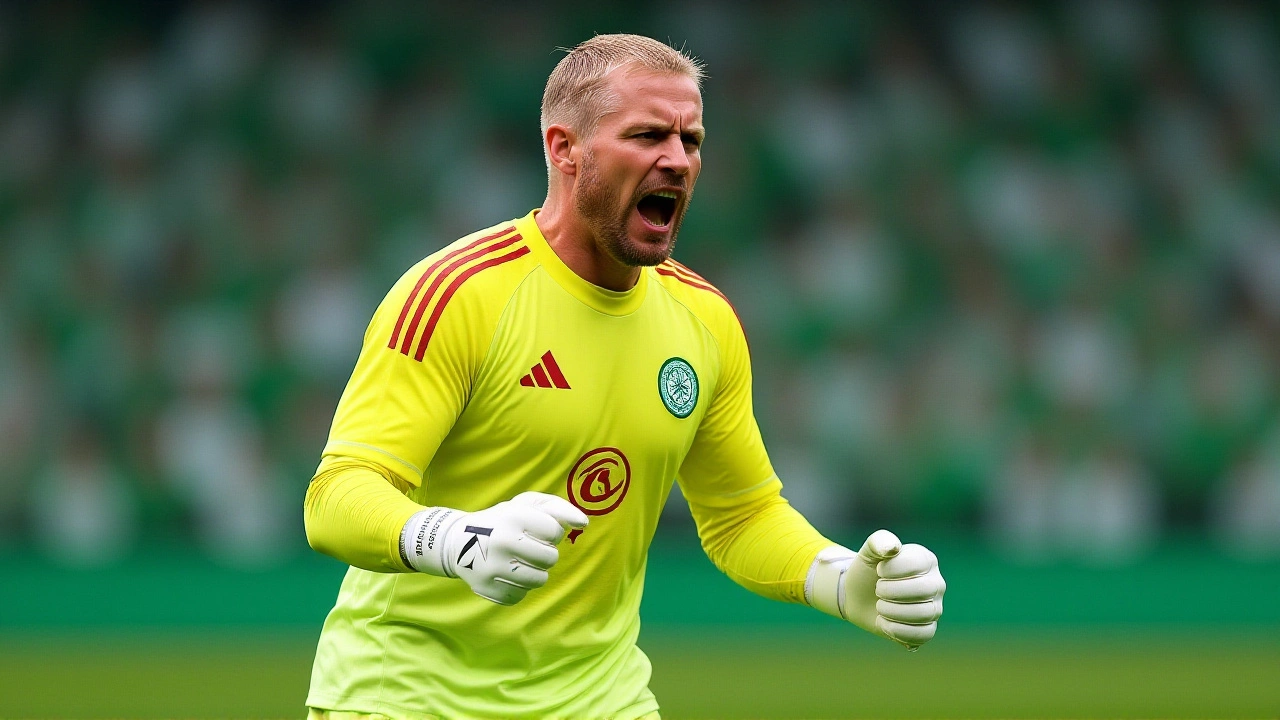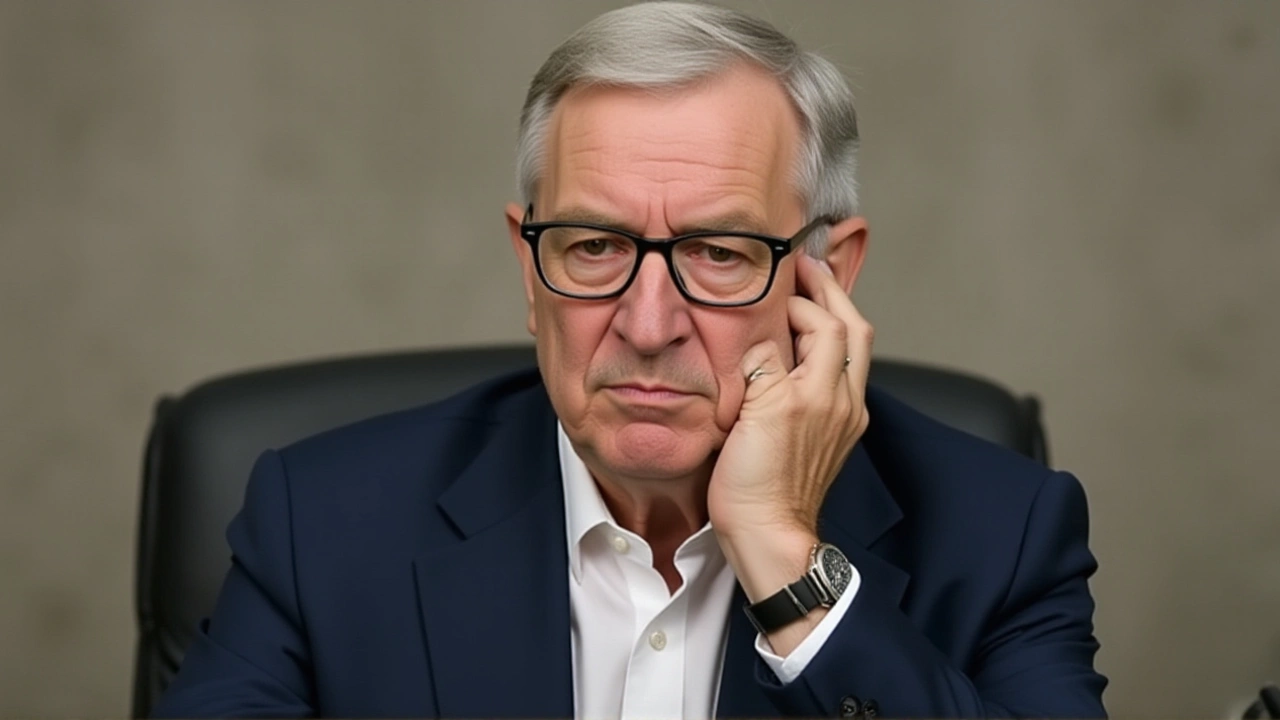When Martin O'Neill — the former manager of Celtic Football Club and the Scotland national football team — admitted he might be "totally wrong" about Scotland’s path to the World Cup, he didn’t just stir debate. He tapped into something deeper: the emotional weight of international football in a nation that’s spent decades chasing glory just out of reach. The comments, reported by Glasgow-based fan site 67hailhail.com, came amid mounting pressure on Scotland’s squad as they prepare for a make-or-break qualifier against the Denmark national football team. O'Neill didn’t just offer analysis; he offered humility.
"Scotland Fans Would Have Accepted This"
"Scotland fans would have accepted this scenario of needing to beat Denmark to qualify for the World Cup," O'Neill reportedly said. It’s a line that cuts both ways. On one hand, it’s a nod to the resilience of Scottish supporters — a fanbase that’s learned to find pride in near-misses. On the other, it’s a quiet indictment of a system that keeps delivering the same heartbreak. Since their last World Cup appearance in 1998, Scotland has qualified just twice: in 1998 and 2022. Each time, the journey felt more like survival than triumph. And now, with another qualifying cycle underway, O'Neill’s words echo the collective sigh of a generation.He didn’t say whether Scotland would win. He didn’t predict goals or lineups. He simply acknowledged that, for fans, the bar has been lowered. A win over Denmark isn’t about glory anymore — it’s about dignity. And that’s a sobering shift.
The Jock Stein Ghost
In a separate remark picked up by onefootball.com, O'Neill mused: "I just wonder what the great Jock Stein would have thought of it." The "it" remains undefined — a deliberate mystery. But anyone who knows Scottish football history knows what he meant. Jock Stein, the legendary Jock Stein, led Celtic Football Club to the 1967 European Cup — the first British team to do so — with a team of lads from Glasgow’s East End. He didn’t just win trophies. He changed the soul of the game in Scotland.O’Neill, who managed Celtic from 1995 to 2000, played under Stein’s shadow. He knows what real ambition looks like. So when he wonders what Stein would think of today’s Scotland — a team stuck in qualifying purgatory — he’s not just being nostalgic. He’s asking: Where did the belief go?
A Joke That Wasn’t a Joke
Then came the line that made people pause: "No, I think that things should hot up in the next year and a half. I’m kidding, that’s just a rubbish joke." On the surface, it’s throwaway humor. But in context? It’s a defense mechanism. O’Neill knows the truth: Scotland’s window isn’t closing — it’s already half-shut. The average age of their current squad is creeping up. Key players like Ryan Fraser and Billy Gilmour are no longer teenagers. And Denmark? They’re a well-oiled machine, ranked 15th in the world, with a squad full of Premier League veterans.That 18-month window? It’s not a prediction. It’s a plea. And O’Neill knows it. That’s why he laughed it off. Because if he took it seriously, he’d have to admit something too painful: Scotland might not get another real shot.

Why This Matters Beyond the Pitch
This isn’t just about football. It’s about identity. In Scotland, where the national team is often the only thing that unites a fractured political landscape, every qualifier feels like a referendum. A win over Denmark isn’t just three points — it’s validation. A loss? It’s another chapter in a long story of "what if?"And O’Neill, as a man who’s seen it all — from lifting the League Cup with Celtic to managing the national side through brutal qualifiers — speaks with the voice of someone who’s been there. He doesn’t sugarcoat. He doesn’t fake optimism. He just says what he sees. And right now, he sees a team that’s talented but emotionally burdened.
Meanwhile, Denmark — a team that reached the Euro 2020 semifinals after losing their captain, Christian Eriksen, to cardiac arrest mid-match — have shown a resilience Scotland can only dream of. They don’t just play football. They play with purpose. Scotland? They play with hope.
What Comes Next
The next qualifier between Scotland and Denmark hasn’t been officially scheduled yet, but it’s expected to fall in late 2024 or early 2025 as part of the 2026 World Cup qualifiers. The group stage includes Poland, Ukraine, and Moldova — all winnable, but none easy. The real test? Consistency. Scotland has won home games. They’ve lost away ones. And against Denmark? Away is where legends are made — or buried.Manager Steve Clarke has brought stability, but not yet breakthroughs. The squad has potential — young talents like Anthony Ralston and Callum McGregor show grit. But they need leadership. And that’s where O’Neill’s words sting the most: Do they even believe they can do it?

The Legacy of a Man Who’s Seen It All
Martin O’Neill didn’t just manage clubs. He shaped generations. He gave Celtic its first European success since Stein. He gave Scotland its most competitive qualifying campaign in over a decade. Now, he watches from the sidelines — and wonders.He doesn’t need to be right. He just needs to be honest. And in a world of hype, spin, and social media noise, that’s rare. That’s why people listen.
Frequently Asked Questions
Why is Martin O'Neill’s opinion on Scotland’s World Cup chances so influential?
O’Neill isn’t just a former manager — he’s a Scottish football icon who led both Celtic and the national team during critical eras. His insights carry weight because he’s navigated the same pressures today’s players face, including brutal qualifiers and fan expectations. He’s seen Scotland’s highs and lows up close, making his candid assessments uniquely credible.
What does Jock Stein’s legacy mean for modern Scottish football?
Jock Stein’s 1967 European Cup win with Celtic — featuring a team of local lads — became the blueprint for Scottish ambition. His belief that Scottish players could compete with Europe’s best still inspires. Today’s national team, struggling to break into major tournaments, is often measured against that standard. O’Neill’s reference to Stein isn’t nostalgia — it’s a challenge to rise again.
How does Denmark compare to Scotland in terms of football infrastructure and performance?
Denmark is ranked 15th in the FIFA world rankings, with a deep Premier League presence and consistent tournament appearances since the 1990s. Scotland, ranked around 40th, relies on a smaller talent pool and inconsistent results. Denmark’s 2020 Euro semifinal run — after a cardiac arrest on the pitch — demonstrated remarkable mental resilience, something Scotland has struggled to replicate under pressure.
When is the next Scotland vs. Denmark World Cup qualifier expected?
The match is scheduled as part of the 2026 World Cup UEFA qualifiers, likely in November 2024 or March 2025. Exact dates and venues are pending UEFA’s final draw, which will be confirmed in late 2024. Scotland will host one leg, and Denmark the other, with both games carrying massive weight for qualification chances.
Is Martin O'Neill still involved in football management?
No, O’Neill retired from full-time management after leaving Nottingham Forest in 2013. Since then, he’s worked as a pundit and occasional advisor, often offering candid analysis on BBC Scotland and other outlets. His recent comments reflect his continued passion for the game, not an official role.
What’s the historical win rate between Scotland and Denmark?
Scotland and Denmark have met 10 times since 1961. Scotland has won just once (a 1-0 friendly in 1987), with Denmark winning six and three draws. Their last meeting was a 2-1 Denmark win in a 2018 World Cup qualifier. The psychological edge has long favored Denmark — a trend Scotland must reverse to qualify for 2026.






